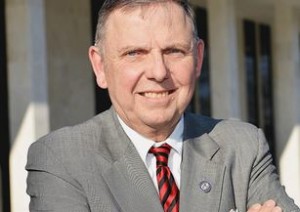
RALEIGH — With the loss of the NCAA and ACC tournaments, the NBA All-Star Game, and untold millions in lost tourism and convention dollars, HB2 has proven to be an economic disaster for North Carolina.
But now, in order to save their re-election hopes, some Republicans such as NC House Rep. Gary Pendleton of Wake County say they would support a special session to repeal parts of HB2. But although Pendleton skipped the original special session that resulted in HB2, anti-LGBT extremist Tami Fitzgerald listed Pendleton’s business as supporting HB2 back in April.
“Pendleton’s waffling on HB2 after supporting it back in April is a transparent attempt to save his own political skin,” said Gerrick Brenner, executive director of Progress NC Action. “Businesses and sports leagues have been speaking out against HB2 since day one, but only now that his re-election is in jeopardy does Pendleton want to do anything about it.”
However, Pendleton still supports the provision banning transgender people from using public facilities matching their gender identity — which is the entire reason for the economic boycott.
“Repealing parts of HB2 while leaving the worst anti-LGBT provision intact would do nothing to stop the economic destruction which this discriminatory and unconstitutional law continues to cause,” added Brenner. “The NCAA was crystal clear on their objections to HB2, and if Pendleton thinks that watering down the law instead of fully repealing it will fix anything, he simply isn’t paying attention.”
According to the NCAA, HB2 is different from anti-transgender laws in other states because of four specific factors:
-
North Carolina laws invalidate any local law that treats sexual orientation as a protected class or has a purpose to prevent discrimination against lesbian, gay, bisexual or transgender individuals.
-
North Carolina has the only statewide law that makes it unlawful to use a restroom different from the gender on one’s birth certificate, regardless of gender identity.
-
North Carolina law provides legal protections for government officials to refuse services to the LGBT community.
-
Five states plus many cities prohibit travel to North Carolina for public employees and representatives of public institutions, which could include student-athletes and campus athletics staff. These states are New York, Minnesota, Washington, Vermont and Connecticut.











